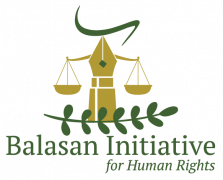Al Makhrour Valley is a haven-like valley in Beit Jala composed of plentiful agricultural terraces with irrigation systems dating back to the Roman period, and a rich biodiversity over the Western Aquifer Basin, one of Palestine’s most important water sources. Al Makhrour Valley is also very famous for its quality agricultural produce, mainly apricots, figs, grapes and olives.
Part of the registered UNESCO World Heritage Site under the name of “Palestine: Land of Olives and Vines: Cultural Landscape of Southern Jerusalem, Battir”, the Valley is of outstanding universal value as the agricultural practices that were used to create this living landscape reflect one of the oldest farming methods known to humankind, and remains a vital source of livelihood for local communities. The Valley encompasses all the elements to flourish into a significant center of agricultural production as well as tourism.
Yet, Al Makhrour Valley’s huge potential is almost entirely hindered and remains restrained by the Israeli policies imposed on it over the past decades, notably though the expansion of illegal Israeli settlements and their related infrastructure such as roads and movement restrictions for Palestinians. The Valley has been the subject of Israeli land annexation interests, now supported and sponsored by the US Administration, pushing for its annexation among other large parts of the occupied Palestinian territory (“oPt”). The US released its “Peace to Prosperity” plan, commonly known as the “Deal of the Century”, in late January 2020, in which Al Makhrour Valley is marked as an area that will be annexed by Israel.
This report aims at shedding light on the current Israeli policies that serve the objective of annexation in Al Makhrour, and their consequences for Palestinians, including the Palestinian Christian community, followed by an analysis of such policies under international law. The report will finally propose a number of recommendations essential in order to save Al Makhrour Valley from the threat of annexation, which is materializing at a very accelerated pace.
Spanish version: http://balasan.org/wp-content/uploads/2020/09/AL-MAKHROUR-Report-Spanish.pdf
